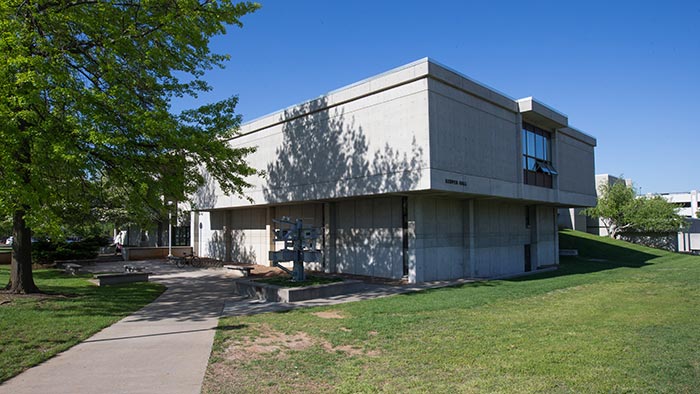
PAMS Seminar: "Predicting Multiscale Responses of Organic High Explosives Subjected to Thermo-Mechanical Extremes" by Dr. Tommy Sewell

- Date and time
- 4:00 PM - 5:00 PM, April 28, 2022
- Description
Dr. Tommy Sewell
Department of Chemistry
University of Missouri-Kansas CityAbstract:
To establish the proper set and setting, I will begin with a brief overview of an interdisciplinary AFOSR “MURI” project that I lead which is focused on the development of integrated experimental and theoretical multiscale methods for understanding and predicting the response of organic composite high explosives to mechanical shock wave excitation. I will then narrow the focus onto a handful of vignettes that address:
- aspects of the fundamental nanoscale material mechanics, transport, and chemistry that occur in shocked molecular crystals, as determined from classical molecular dynamics (MD) simulations;
- some even more fundamental formal developments in the theory of thermal transport in dielectrics;
- a physics-constrained, MD-trained neural network approach for obtaining Helmholtz free-energy functionals which capture the single-crystal hyperelastic response in a form suitable for use in finite-strain continuum solid-mechanics simulations; and
- head-to-head comparisons between large-scale MD and continuum-mechanics predictions of shock-induced pore-collapse in molecular crystals, focusing on the sensitivity of the continuum results both to the mesoscale material model form and to the amount of fundamental information from the nanoscale used in the parameterization.
It is not my intent to present the preceding in mind-numbing detail. Rather, I merely seek to convey a sense for the kinds of new knowledge and understanding of the nanoscale physics that we are obtaining and the methods by which they are achieved; how this fundamental information is being upscaled to the continuum mesoscale; and perhaps a few opinions as regards implications of our findings for future mesoscale material modeling of shock waves in complex systems.
- Event sponsor
- Physics, Astronomy and Materials Science
- Admission
Free
- Open to public, alumni, current students, faculty, future students, staff
- Location
Additional information
- Event contact
- Tiglet Besara
- Assistant Professor
- tigletbesara@missouristate.edu
- 417-836-6298
- Visit website
